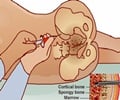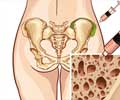The brain has limited capability for self-repair or regeneration and so stem cells which can rejuvenate are the best hope to treat brain cells.

‘Stem cells secrete rejuvenating factors that can restore the health of stressed cells in the brain and can replace them.’





The potential value of stem cells and emerging therapeutic agents in neurodegenerative diseases are the focus of an article published in Rejuvenation Research, a peer-reviewed journal from Mary Ann Liebert, Inc., publishers. Martina Nasello, Giuseppe Schirò, Floriana Crapanzano, and Carmela Rita Balistreri, University of Palermo, Italy, review the published literature and the most recent data evaluating the effectiveness of stem cells and other potential therapeutic compounds in the prevention and treatment of neurodegenerative pathologies.
The researchers discuss the potential advantages and obstacles for using different types of stem cells, including embryonic (ESC), mesenchymal (MSC), induced pluripotent (iPSC), and neuronal (NSC) stem cells as therapeutic agents. They also present the evidence to support further study of compounds such as metformin and melatonin hybrids, and of natural antioxidants including resveratrol, curcumin, and acetyl-L-carnitine.
"Especially at late stages, the main chronic neurodegenerative conditions of old age are characterized by the loss of neurons that the body does not replace; we need stem cell therapies to do that replacement," says Editor-in-Chief Aubrey D.N.J. de Grey, SENS Research Foundation, Mountain View, CA.
Stem cells also secrete rejuvenating factors that can restore the health of stressed cells at an earlier stage in such diseases.
Advertisement
Source-Eurekalert















